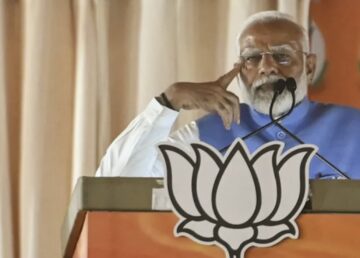Prashant Kidambi in the Times Literary Supplement:
 At the dawn of the twenty-first century India’s intellectual classes professed a cautious optimism – verging at times on self-congratulation – about the nation’s tryst with democracy. For many, the unruly coalition governments of the late 1990s and early 2000s reflected the deepening of democratic norms and a shared commitment to the peaceful transfer of power. Others pointed to high voter turnouts – especially among the poor – and the rise of elected representatives from hitherto subordinated castes as proof that democracy had been profoundly vernacularized.
At the dawn of the twenty-first century India’s intellectual classes professed a cautious optimism – verging at times on self-congratulation – about the nation’s tryst with democracy. For many, the unruly coalition governments of the late 1990s and early 2000s reflected the deepening of democratic norms and a shared commitment to the peaceful transfer of power. Others pointed to high voter turnouts – especially among the poor – and the rise of elected representatives from hitherto subordinated castes as proof that democracy had been profoundly vernacularized.
To be sure, these accounts were cognizant of the deficiencies and contradictions of democratic politics in India, including the concomitant resurgence of exclusionary identities, the criminalization of politics, the elevation of performative equality over substantive redistribution and the deepening of social cleavages along lines of caste and religion. But there was nonetheless a broad consensus about the legitimacy of India’s democratic credentials. Today there are many who question, with good reason, the country’s inclusion in the roster of democracies at all.
More here.
